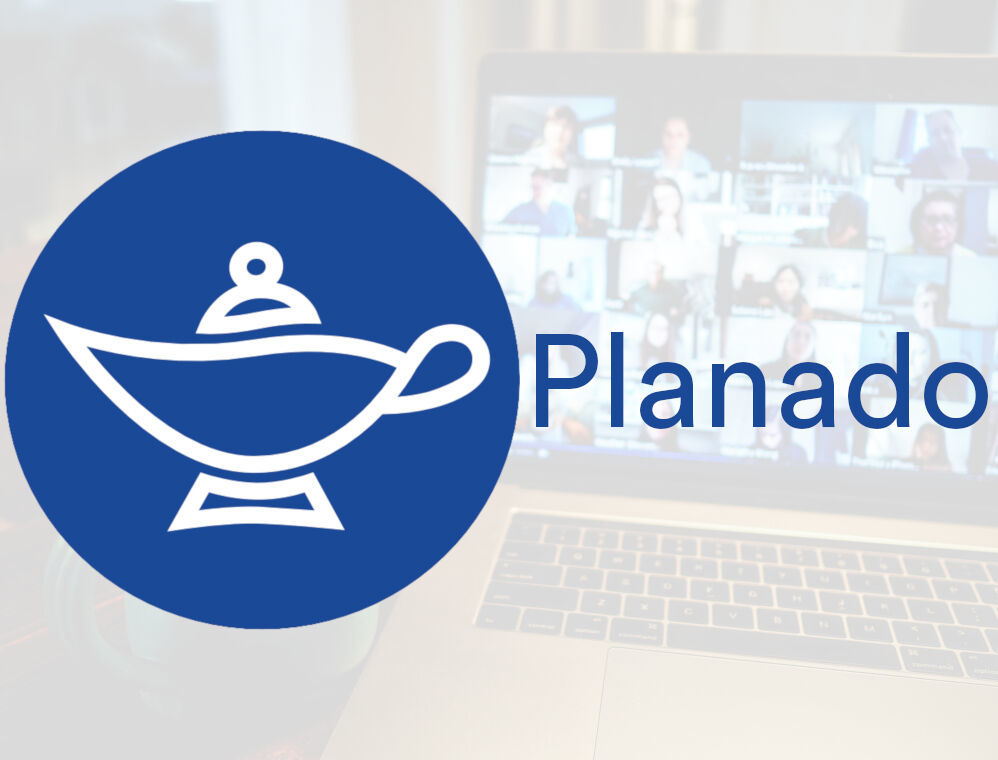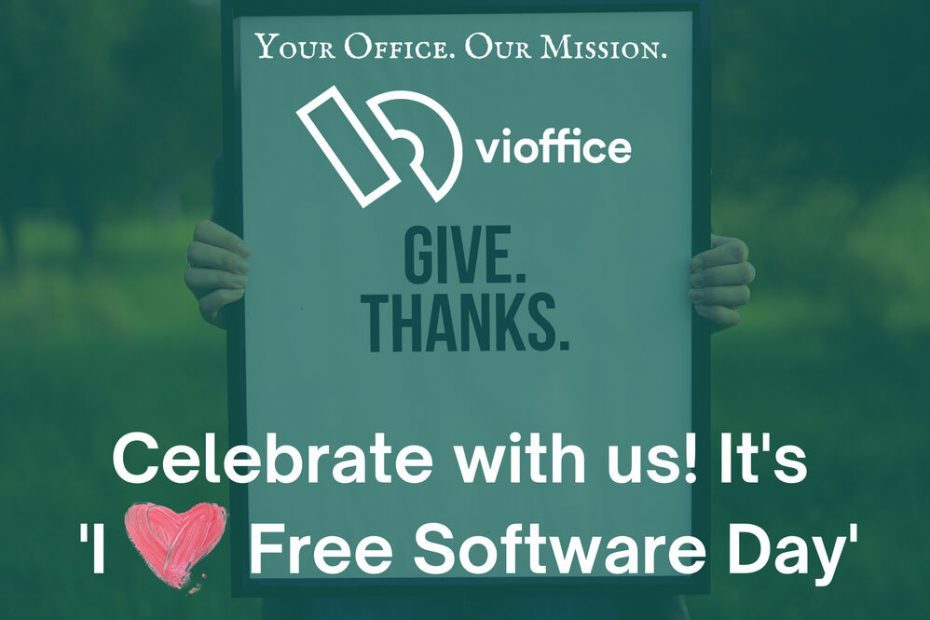February 14 is traditionally a day of love and appreciation. Many lovers and couples celebrate Valentine’s Day on this day. We would also like to take the opportunity to say “Thank you!”. Thank you to the Free Software Community, to all contributors and volunteer supporters.
Besides expressing deep gratitude, we would like to spread the idea of the ‘I Love Free Software Day’ and raise awareness for the use of Free Software.
‘I Love Free Software Day’ – What is it?
The ‘I Love Free Software Day’is part of a campaign of the Free Software Foundation Europe (FSFE), which was launched about 10 years ago. The FSFE is a sister organization of the US-based Free Software Foundation (FSF) and, as a non-profit association based in Hamburg, has been an integral part of this movement since 2001. Under the hashtag #ilovefs, both organisations as well as the Free Software movement as a whole make an annual call to thank all Free Software enthusiasts and contributors for their work.
Free Software serves the public and you have certainly used Free Software, consciously or unconciously, because it is the basis of many other (also non-free) projects. Whether GNU/Linux, Android, Mozilla Firefox or even Google Chrome, they are all either under the Free and Opensource Software (FOSS) license themselves or some core components are based on it.
What is Free Software?

Free Software lives from the community of free programmers, the Free Software Movement (also called ‘Free Software Community’). The FSFE defines software as “Free” if it fulfills the basic four freedoms: The freedom to use the software, the freedom to understand it, the freedom to distribute it, and the freedom to improve it. We already dedicated our first blog article in October last year in detail to the topic of Free Software.
What does ViOffice have to do with Free Software?

As can be seen on our website and in the Helpcenter, ViOffice consists of many individual components, which we offer – sensibly and fully integrated with each other – as a complete package in a hosted service. The business concept behind this is commonly referred to as “Software-as-a-Service” (SaaS) and is common practice in the software sector. Alternatively, ViOffice offers these and other services as a so-called On-Premise offering, which is installed on the customer’s own infrastructure. Most of these individual components integrated into ViOffice were not written by the ViOffice team itself, but by many thousands of developers worldwide. They are part of the Free Software Community and publish their code under a FOSS license so that others can use it without restrictions.
In return, we continuously develop the Free Software components we use and in turn publish our own code with the corresponding improvements for the general public or give back to the Free Software communities directly. Furthermore, with contributions like these, we try to bring the topic of Free Software and Open Source to the center of society, benefiting not only the Free Software Movement, but our free society as a whole. Furthermore, we would like to express our gratitude and support the respective projects with financial compensations for the respective developers.
Planado: Our contribution to the Free Software community

Last but not least, we would like to introduce a project we have been working on for a while now, have already tested it for weeks now and in fact already deployed it for our customers. To celebrate the day, we are finally ready to publish the code under a FOSS-License, so that other may also use, study, share and improve this project.
We are talking about our new tool “Planado“: Planado is a simple, lightweight and easy to host planning- and booking tool for the Free Software video conferencing tool Jitsi-Meet.
We felt the need to be able to plan video conferences in Jitsi-Meet, where it is possible to publicly post an invite link without someone else being able to occupy the designated room. Of course the essence of Jitsi-Meet with broad anonymity of the users and temporary rooms on-demand should still be preserved.
We came up with an easy solution called “Planado”! It generated a unique invite-link for your peers as well as a unique, extremely hard to guess room name for Jitsi-Meet. Planado makes sure, that nobody may occupy the Jitsi-Meet room before the conference begins and thus finally enables you to schedule Jitsi-Meet conferences long in advance.
The beauty of Planado lies within the fact, that there are no special requirements on the Jitsi-Meet side. In fact, the Jitsi-Meet instance does not even need to be aware of Planado at all. This means, that one may host Planado for other, public Jitsi-Meet instances. No additional stress is put onto these Jitsi-Meet instances and no special configurations are required.
A properly configured instance of Planado stores data only temporary, until the meeting is over. Additionally, as little information as possible is stored and none of the information is either confidential or personal. Hence Plenado is GPDR compliant and privacy aware by default. It respects the user’s right for informational self-determination and does not track users ever. It does one job and nothing else.
With immediate effect, Planado is available for other developers under the AGPL-3.0 license either from out Codeberg-Repository or from our Github-Mirror.
If you would like to try Planado without setting it up first, you can simply use our demo-instance on planado.vioffice.de (uses the public Jitsi-Meet Server https://meet.jit.si) or – for ViOffice customers specifically under conference.vioffice.de (uses the non-public ViOffice Conference).
Share this Post:


